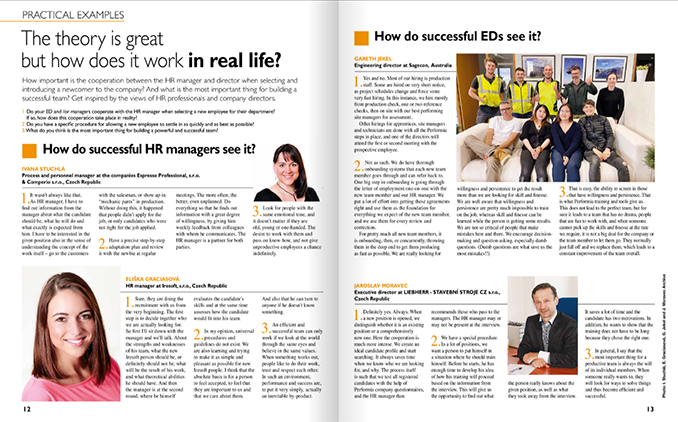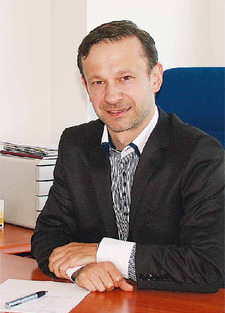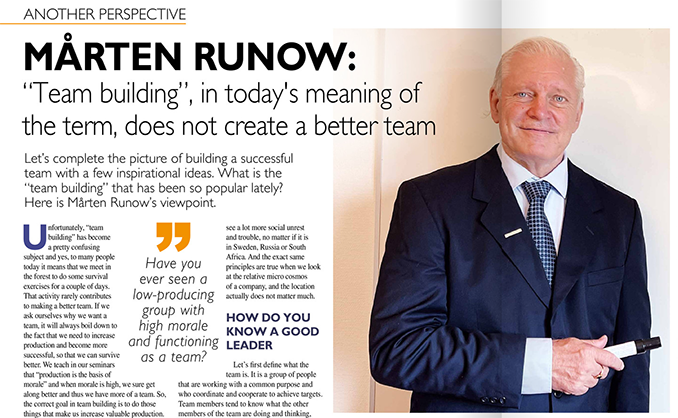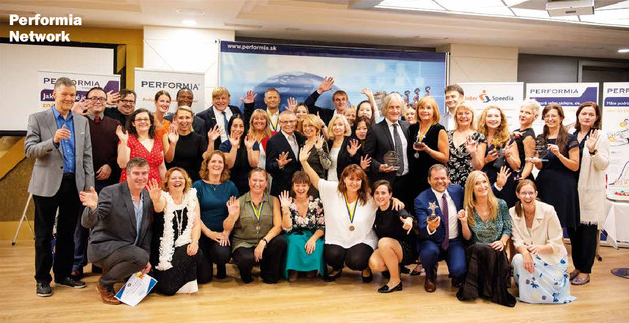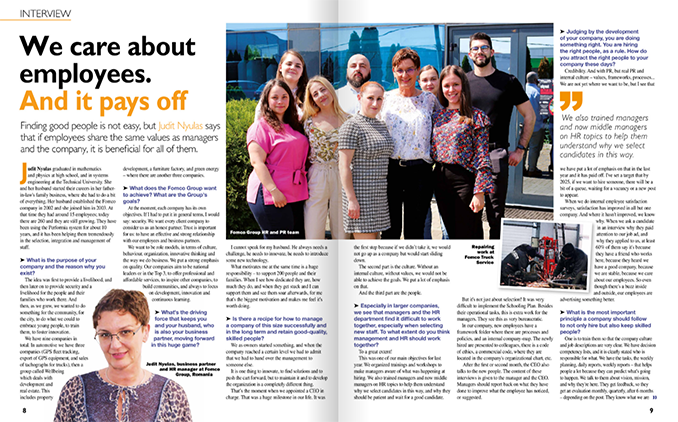
Finding good people is not easy, but Judit Nyulas says that if employees share the same values as managers and the company, it is beneficial for all of them
Judit Nyulas graduated in mathematics and physics at high school, and in systems engineering at the Technical University. She and her husband started their careers in her father-in-law’s family business, where she had to do a bit of everything. Her husband established the Fomco company in 2002 and she joined him in 2003. At that time they had around 15 employees; today there are 260 and they are still growing. They have been using the Performia system for about 10 years, and it has been helping them tremendously in the selection, integration and management of staff.
What is the purpose of your company and the reason why you exist?
The idea was first to provide a livelihood, and then later on to provide security and a livelihood for the people and their families who work there. And then, as we grew, we wanted to do something for the community, for the city, to do what we could to embrace young people, to train them, to foster innovation.
We have nine companies in total. In automotive we have three companies (GPS fleet tracking, export of GPS equipment, and sales of tachographs for trucks), then a group called Wellbeing which deals with development and real estate. This includes property development, a furniture factory, and green energy – where there are another three companies.
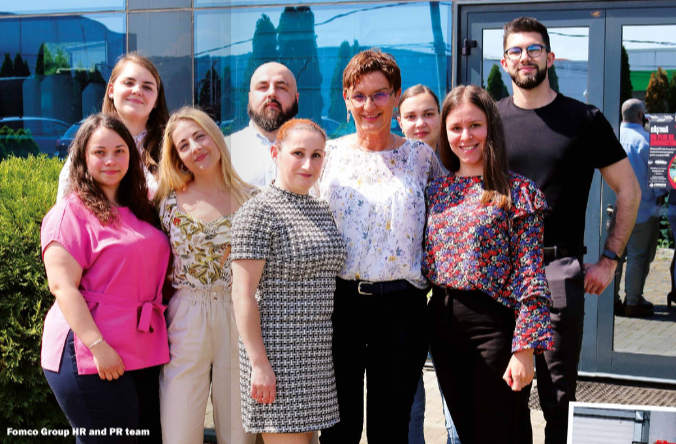
At the moment, each company has its own objectives. If I had to put it in general terms, I would say: security. We want every client company to consider us as an honest partner. Trust is important for us: to have an effective and strong relationship with our employees and business partners.
We want to be role models, in terms of culture, behaviour, organization, innovative thinking and the way we do business. We put a strong emphasis on quality. Our companies aim to be national leaders or in the Top 3, to offer professional and affordable services, to inspire other companies, to build communities, and always to focus on development, innovation and continuous learning.
What’s the driving force that keeps you and your husband, who is also your business partner, moving forward in this huge game?
I cannot speak for my husband. He always needs a challenge, he needs to innovate, he needs to introduce some new technology.
What motivates me at the same time is a huge responsibility – to support 200 people and their families. When I see how dedicated they are, how much they do, and when they get stuck and I can support them and see them soar afterwards, for me that’s the biggest motivation and makes me feel it’s worth doing.
 Is there a recipe for how to manage a company of this size successfully and in the long term and retain good-quality, skilled people?
Is there a recipe for how to manage a company of this size successfully and in the long term and retain good-quality, skilled people?
We as owners started something, and when the company reached a certain level we had to admit that we had to hand over the management to someone else.
It is one thing to innovate, to find solutions and to push the cart forward, but to maintain it and to develop the organization is a completely different thing.
That’s the moment when we appointed a CEO in charge. That was a huge milestone in our life. It was the first step because if we didn’t take it, we would not go up as a company but would start sliding down.
The second part is the culture. Without an internal culture, without values, we would not be able to achieve the goals. We put a lot of emphasis on that.
And the third part are the people.
Especially in larger companies, we see that managers and the HR department find it difficult to work together, especially when selecting new staff. To what extent do you think management and HR should work together?
To a great extent!
This was one of our main objectives for last year. We organized trainings and workshops to make managers aware of what was happening at hiring. We also trained managers and now middle managers on HR topics to help them understand why we select candidates in this way, and why they should be patient and wait for a good candidate.
But it’s not just about selection! It was very difficult to implement the Schooling Plan. Besides their operational tasks, this is extra work for the managers. They see this as very bureaucratic.
In our company, new employees have a framework folder where there are processes and policies, and an internal company-map. The newly hired are presented to colleagues, there is a code of ethics, a commercial code, where they are located in the company’s organizational chart, etc.
After the first or second month, the CEO also talks to the new people. The content of these interviews is given to the manager and the CEO. Managers should report back on what they have done to improve what the employee has noticed, or suggested.
We also trained managers and now
middle managers on HR topics tho help them
kunderstand why we select candidates in this way.
Judging by the development of your company, you are doing something right. You are hiring the right people, as a rule. How do you attract the right people to your company these days?
Credibility. And with PR, but real PR and internal culture – values, frameworks, processes… We are not yet where we want to be, but I see that we have put a lot of emphasis on that in the last year and it has paid off. I’ve set a target that by 2025, if we want to hire someone, there will be a bit of a queue, waiting for a vacancy or a new post to appear.
When we do internal employee satisfaction surveys, satisfaction has improved in all but one company. And where it hasn’t improved, we know why. When we ask a candidate in an interview why they paid attention to our job ad, and why they applied to us, at least 60% of them say it’s because they have a friend who works here, because they heard we have a good company, because we are stable, because we care about our employees. So even though there’s a buzz inside and outside, our employees are advertising something better.
What is the most important principle a company should follow to not only hire but also keep skilled people?
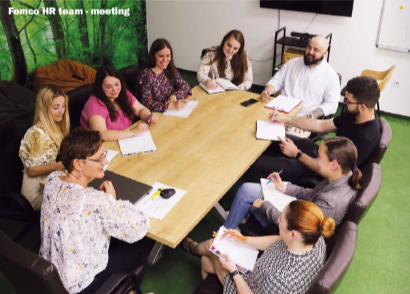
One is to train them so that the company culture and job descriptions are very clear. We have decision competency lists, and it is clearly stated who is responsible for what. We have the tasks, the weekly planning, daily reports, weekly reports – that helps people a lot because they can predict what’s going to happen. We talk to them about vision, mission, and why they’re here. They get feedback, so they get an evaluation monthly, quarterly, after 6 months – depending on the post. They know what we are satisfied with and what we are not satisfied with. Bonus system KPIs* are set up. If you produce more, you get more. There are a lot of little elements that are necessary to keep them.
At the Fomco Group, you use Performia online tools. How do those help you at your work?
I have been using them for 10 years. I was the pioneer in Romania. Together we improved and translated the systems. After all these years of experience, our managers trust the Performia System. It’s very, very helpful when we evaluate the tests. What we see in the candidate’s results is confirmed in about half a year at the most.
People are confronted with why they do what they do, and why they are more sensitive to particular situations. It’s very important for me to know these things, and for them to know them, because it makes it easier for them to get through difficult situations.
I couldn’t imagine working without the Performia tests. They have been proven over the years and I trust these tests. It’s not just that I trust them, it’s that I objectively have the results. It is confirmed. And I can see in people’s eyes at training sessions how much it means to learn about people, how much it means to understand how people are selected and how people behave. It helps not only within the company but in your personal life.
Choose them well, trust them,
delegate, hold their hand at the beginning
and then gradually let go.
How can you best manage your staff to ensure that the company is constantly growing, but that staff also feel they are growing?
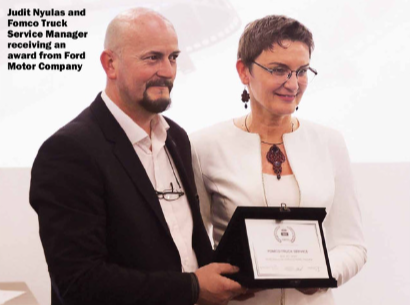
Leading by example. For example, we have a code of ethics. It was created by the employees themselves with supervision and support. There were a few core values that came from the owner, but beyond that, the behaviour, the dress code, etc. came from them, it’s theirs. This was demonstrated in a team-building session.
You work with a very young team. How can a young person, a newcomer, succeed in such a big group of companies and in such an important area as HR?
With the right support. Choose them well, trust them, delegate, hold their hand at the beginning and then gradually let go. Expecting them to work independently and letting them make mistakes, which we correct together. If I give out a job, it will never be done as if I did it, because everyone does it a little differently. They do tasks that I can’t do anymore: Facebook, Instagram, and organizing presentations at universities. Usually, company managers are invited to these universities, but I recommended that HR people should go because they are closer to young people. They share their own experiences, and the audience sees that they have been interviewed on TV, radio, job fairs, and how they are soaring and satisfied with what they are achieving.
*KPI = Key Performance Indicator
Thank you very much, Judit Nyulas, I wish you good luck in your activities. ■
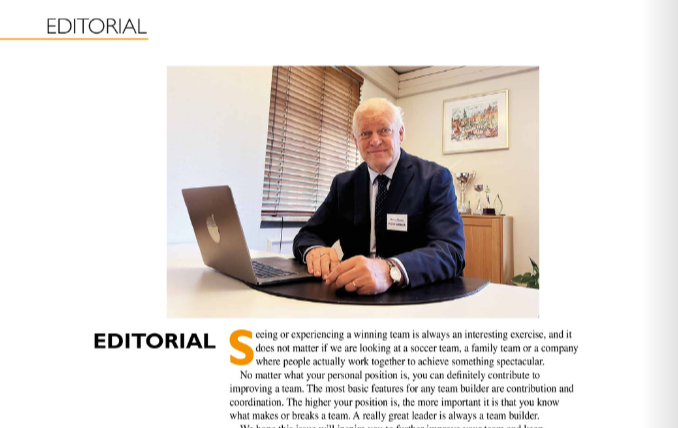


 RULES FOR THE HR DEPARTMENT
RULES FOR THE HR DEPARTMENT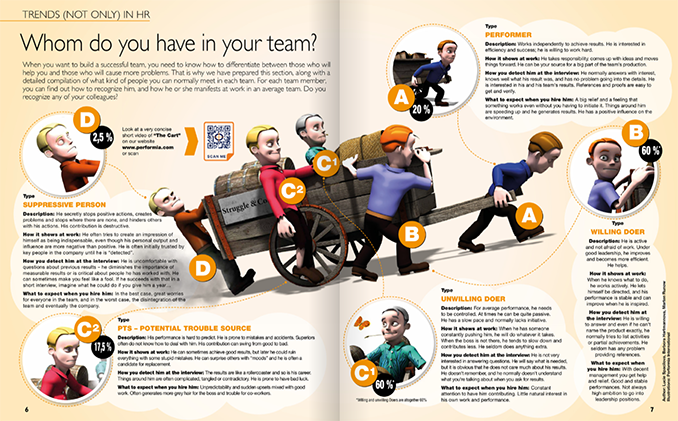


 Is there a recipe for how to manage a company of this size successfully and in the long term and retain good-quality, skilled people?
Is there a recipe for how to manage a company of this size successfully and in the long term and retain good-quality, skilled people?

